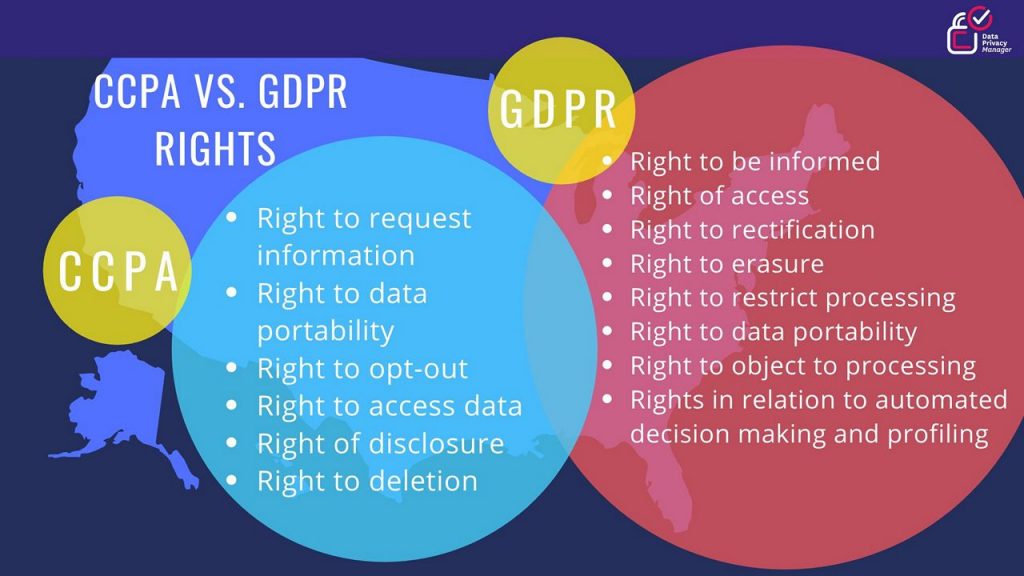CCPA is an acronym for the California Consumer Privacy Act of 2018. This was made to secure and protect the data privacy rights of people living in California. Data companies encourage transparency to data consumers over the data that they collect.
Privacy rights for CCPA

Knowledge
Members under CCPA have the right to know what information is collected about them and how the information will be used.
Deleting
Users have the right to erase the personal data that was collected. In case they feel the information is too sensitive or should not be shared, they are given the privilege to delete it.
Opt-out option
Companies have the right to sell information about their consumers. However, a user has the right to opt out of the service with few exceptions. Consumers can opt back, but this happens after 12 months.
Non-discrimination
When members delete their personal information from the system or opt-out to discontinue the sale of their personal information, they might not be able to enjoy the benefits that come along with the absence of these features. This applies to all members.
CCPA personal data

CCPA identifies certain information as personal and can be used to protect anyone In California under the Act, the following is considered personal information.
Personal identifiers
This is information that is unique to an individual and cannot be owned by anyone else. This includes name, national ID number, passport number, email address, contact information, or passport number.
Commercial information
Entails information unique to a given consumer. This includes purchase history, transaction details, and product information.
Biometric data
Some consumers access information via information unique to them via body sensory organs. Such data includes fingerprint, pupil recognition, and other sensory organs.
Connectivity information
This entails information unique to consumers but related to their internet and gadgets they use for the connection. Such include IP address numbers, search history, internet gadgets connected, and interaction with online sites.
Frequently Asked Questions

Can CCPA protect a non-resident of California?
Unfortunately, no. CCPA is only made for California residents. Anyone else who is not a resident will not be under the act.
What is not considered personal information under CCPA?
Information readily available to the public is not considered personal. Read this article to know more about information readily known to the public.
Under what conditions can an opt-out request be denied?
If a transaction requires personal information and is required by the government. Also, if the provided information is not under the CCPA, a business might deny the right of opting out.
Who needs to comply with CCPA?
Businesses that make $25 million or more in gross revenue every year, businesses that carry out transactions for 50,000 or more, California residents, and businesses that make 50% or more revenue from the sale of consumers’ personal information.
What is included in the CCPA message?
Clear information is written in English. The information must be well sectioned into paragraphs, and the font must be big enough to be seen by persons with poor eyesight.
In conclusion, all California Residents are under the CCPA act and should take advantage of this privilege.
